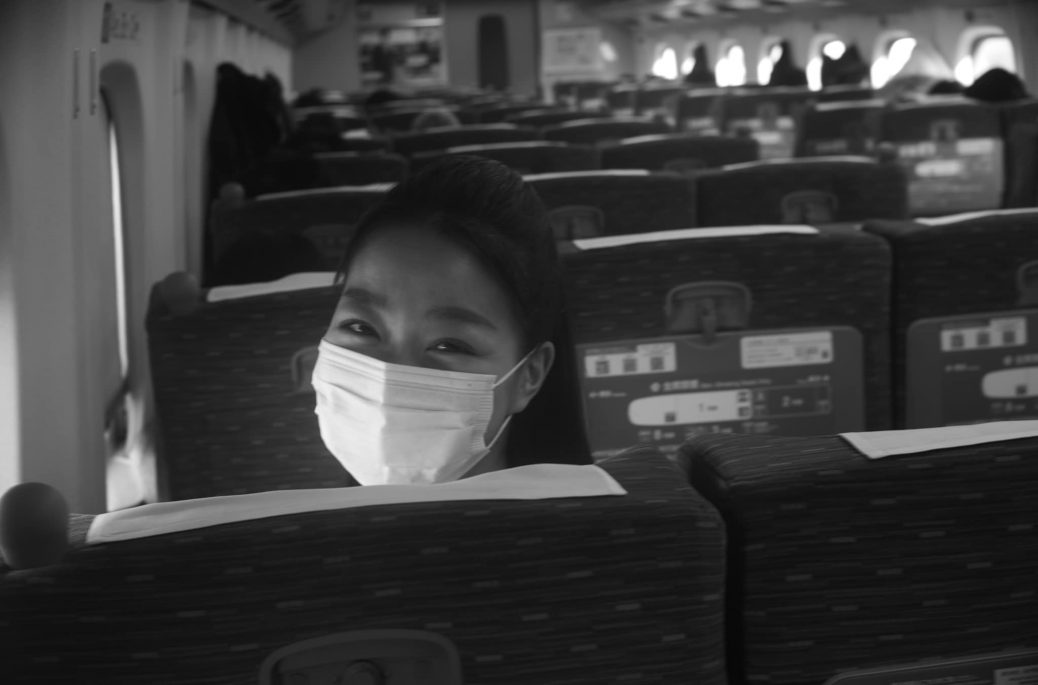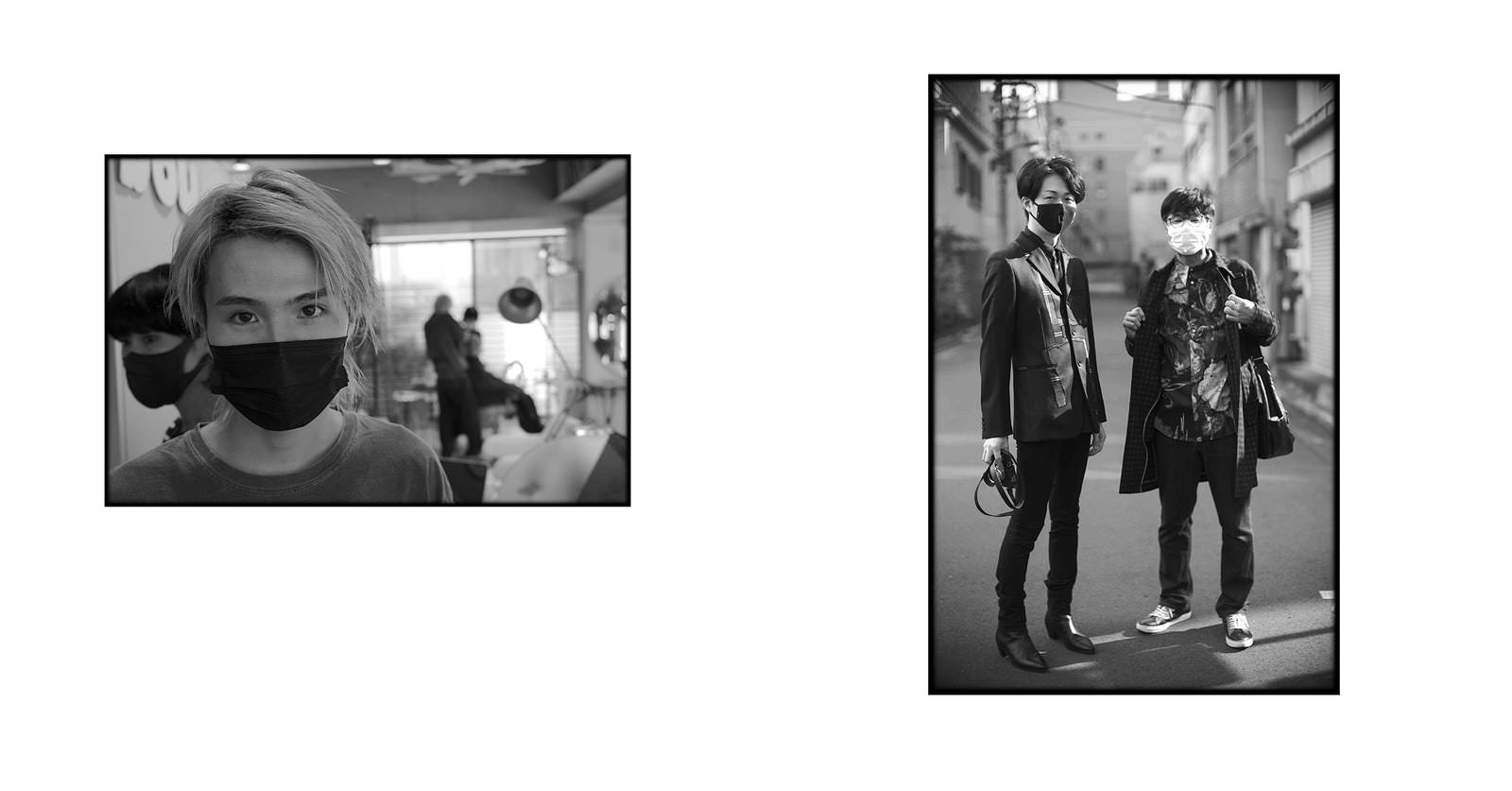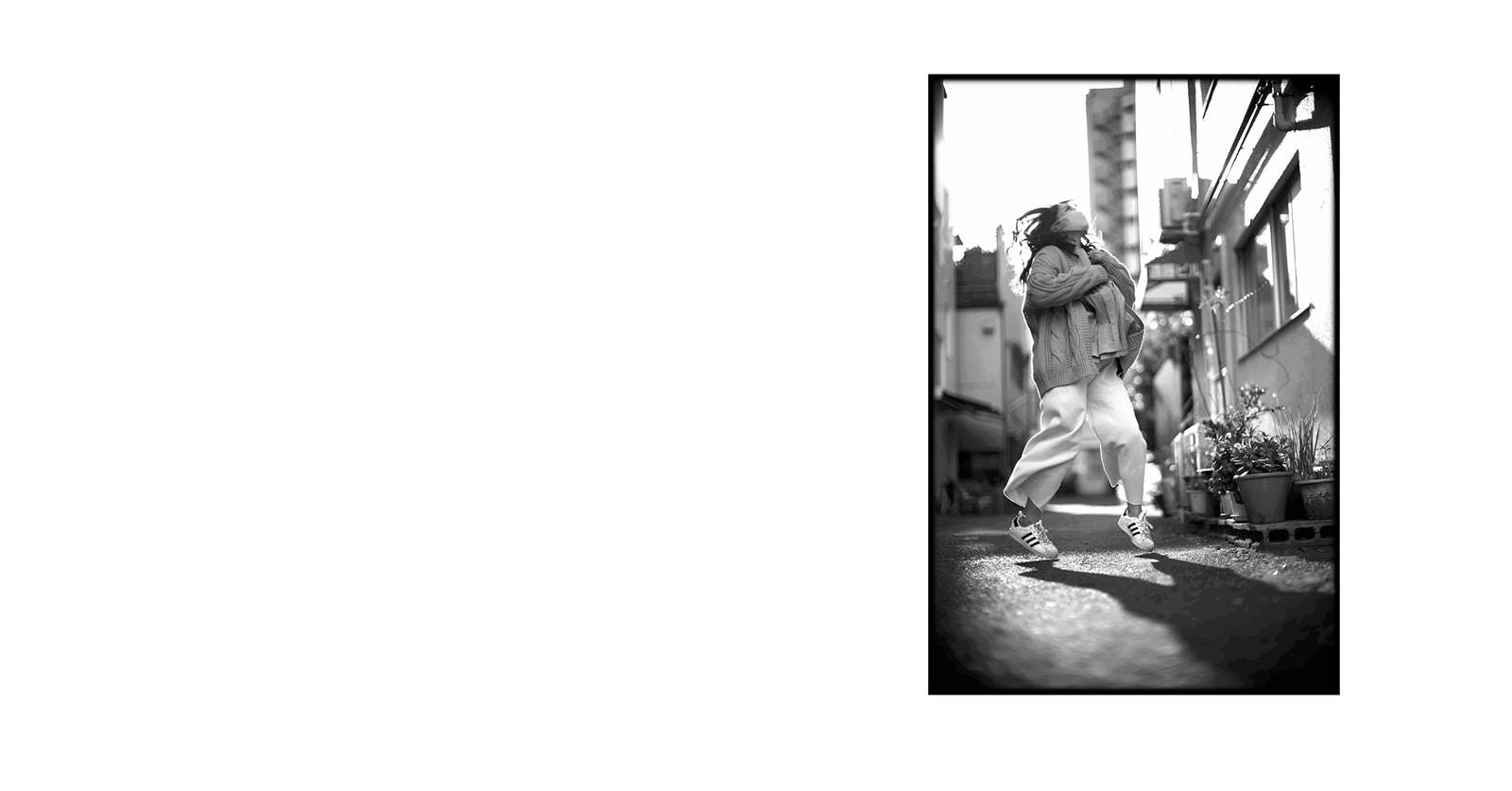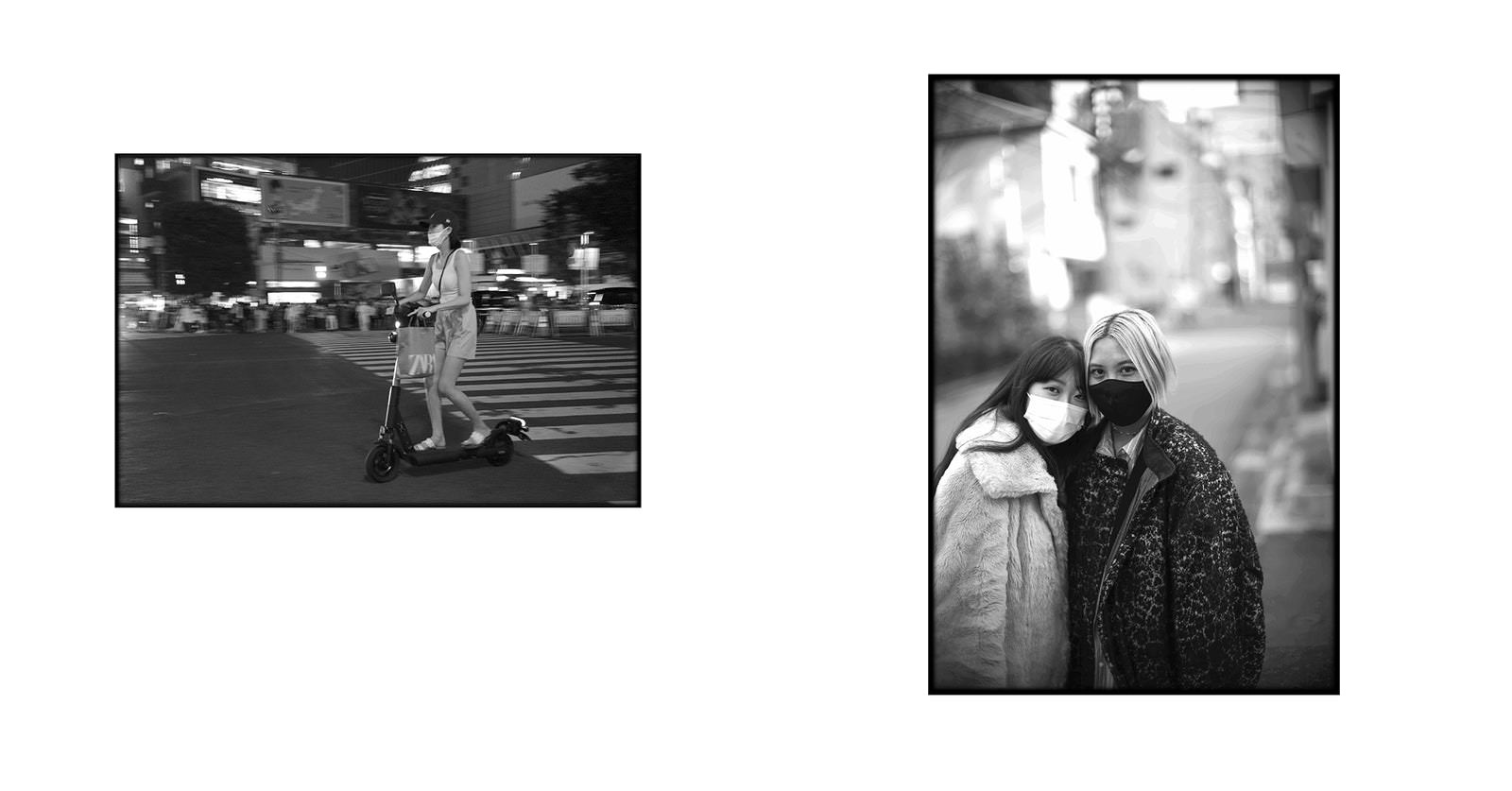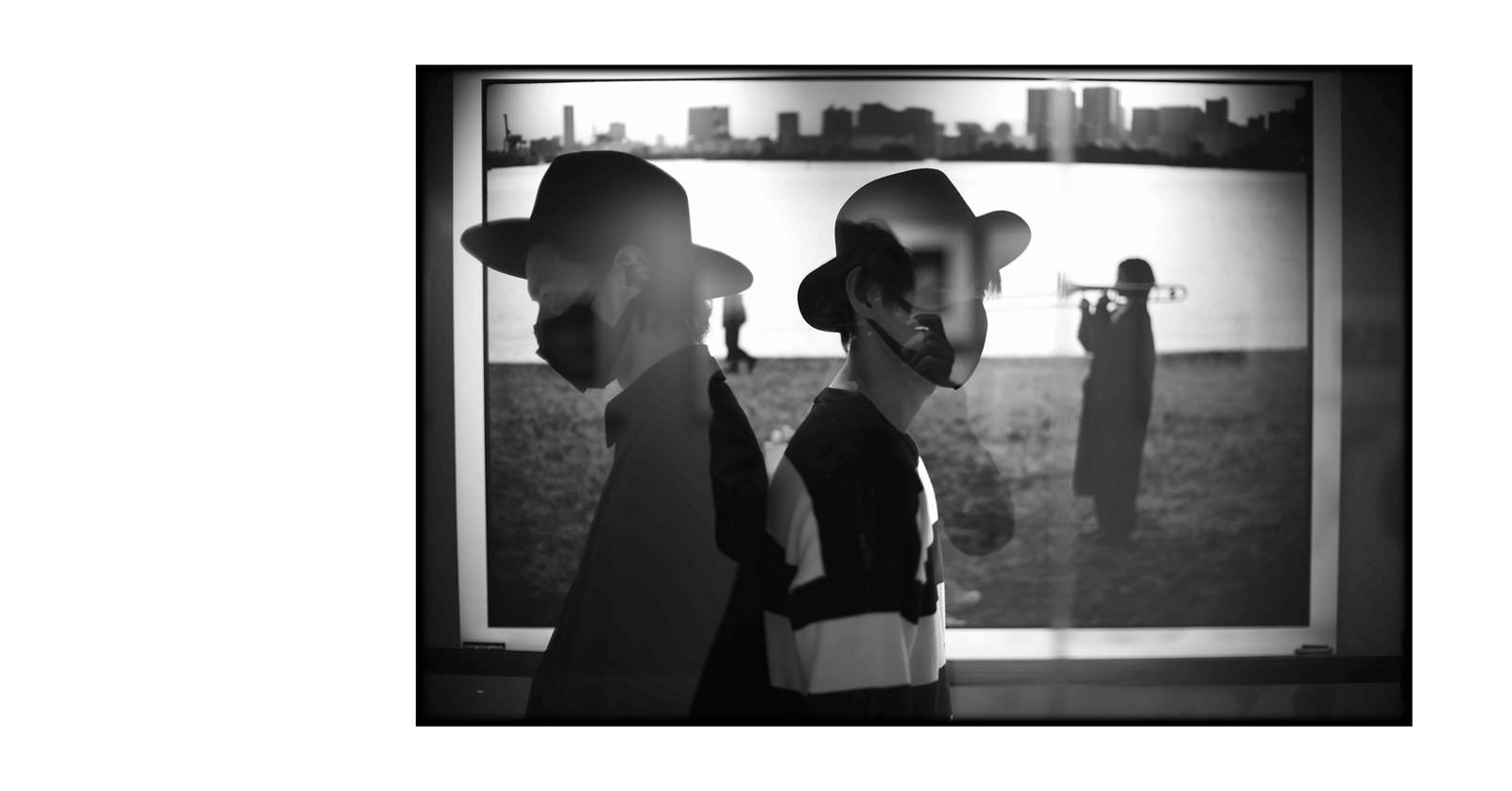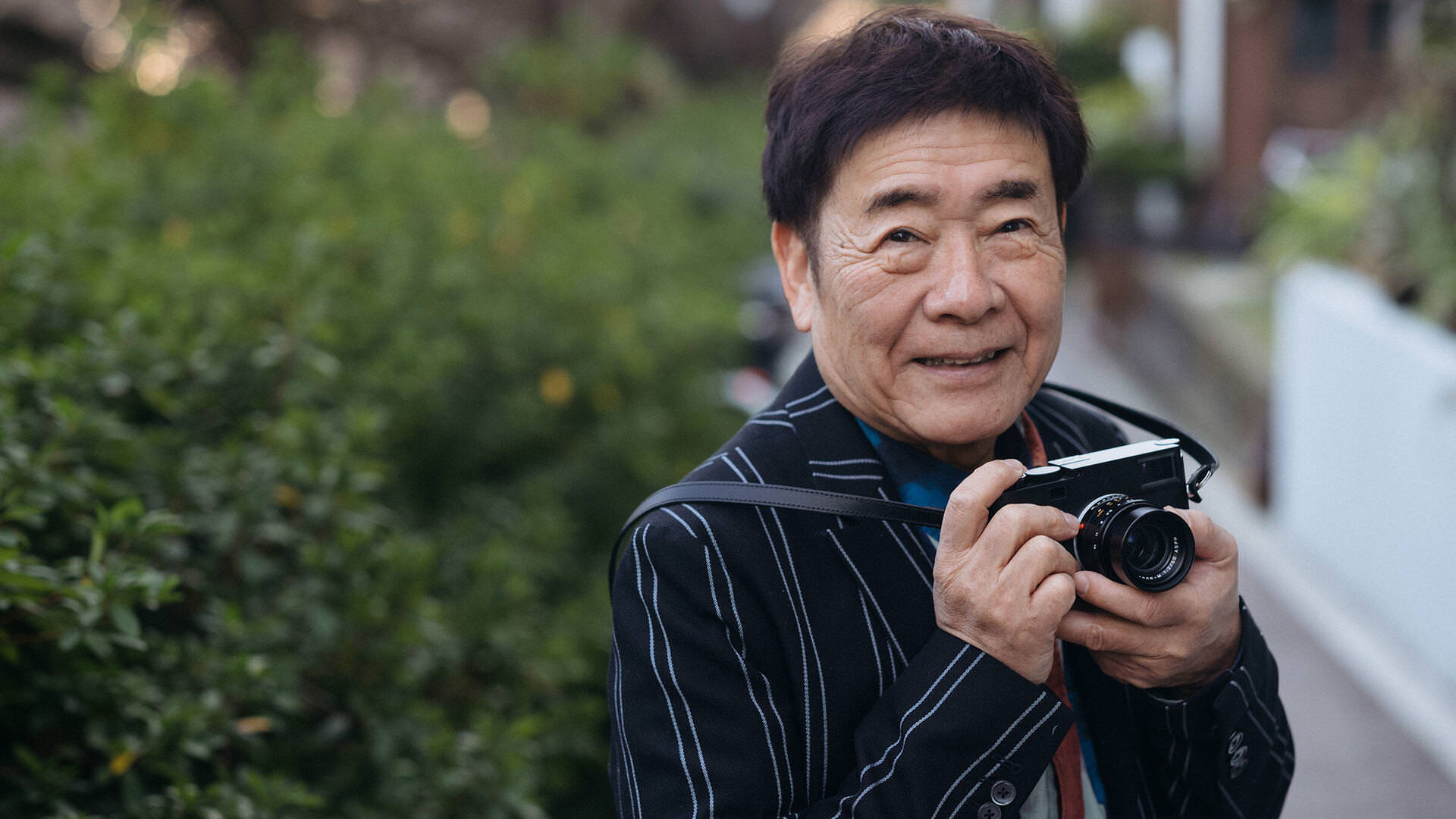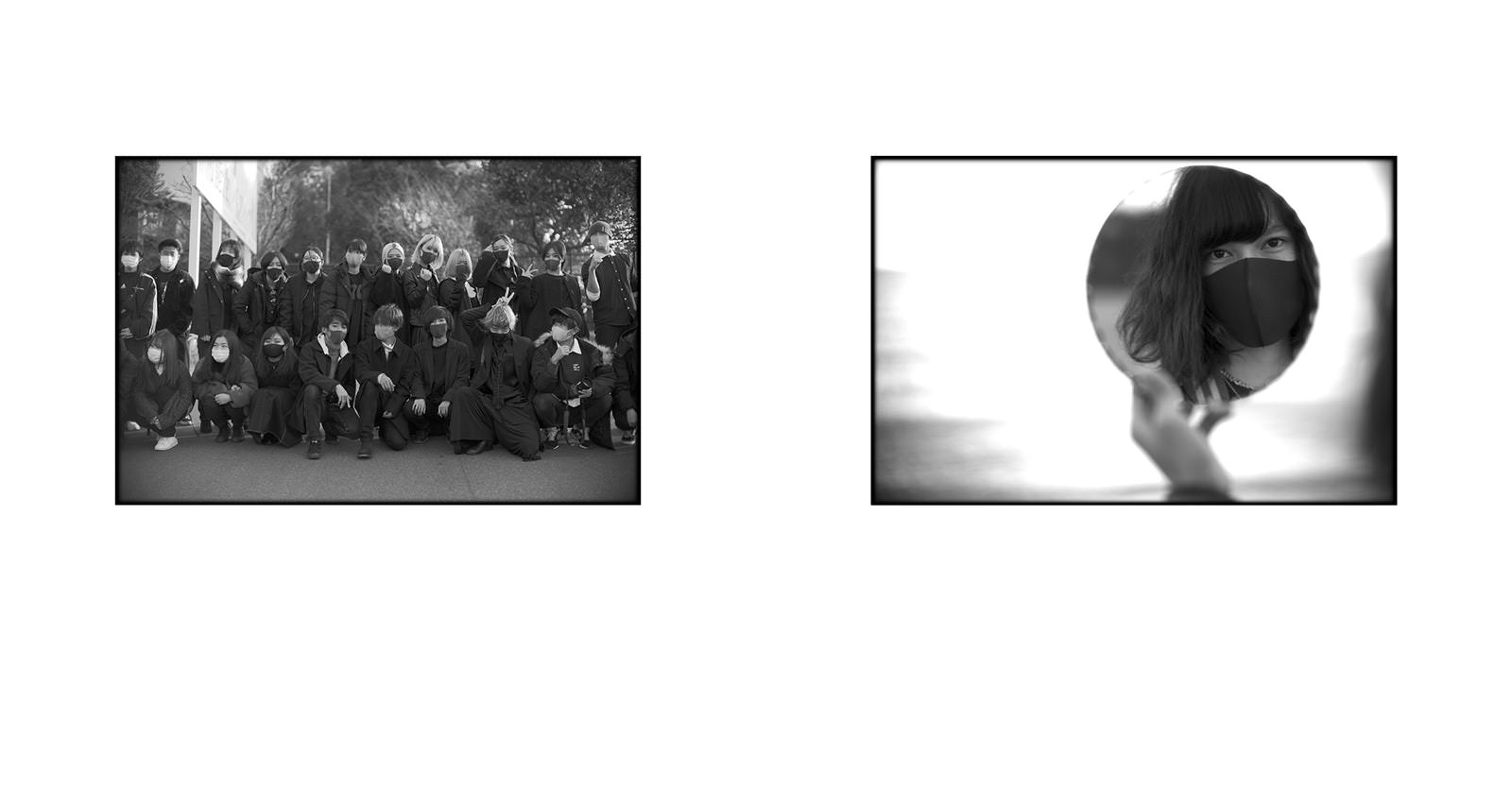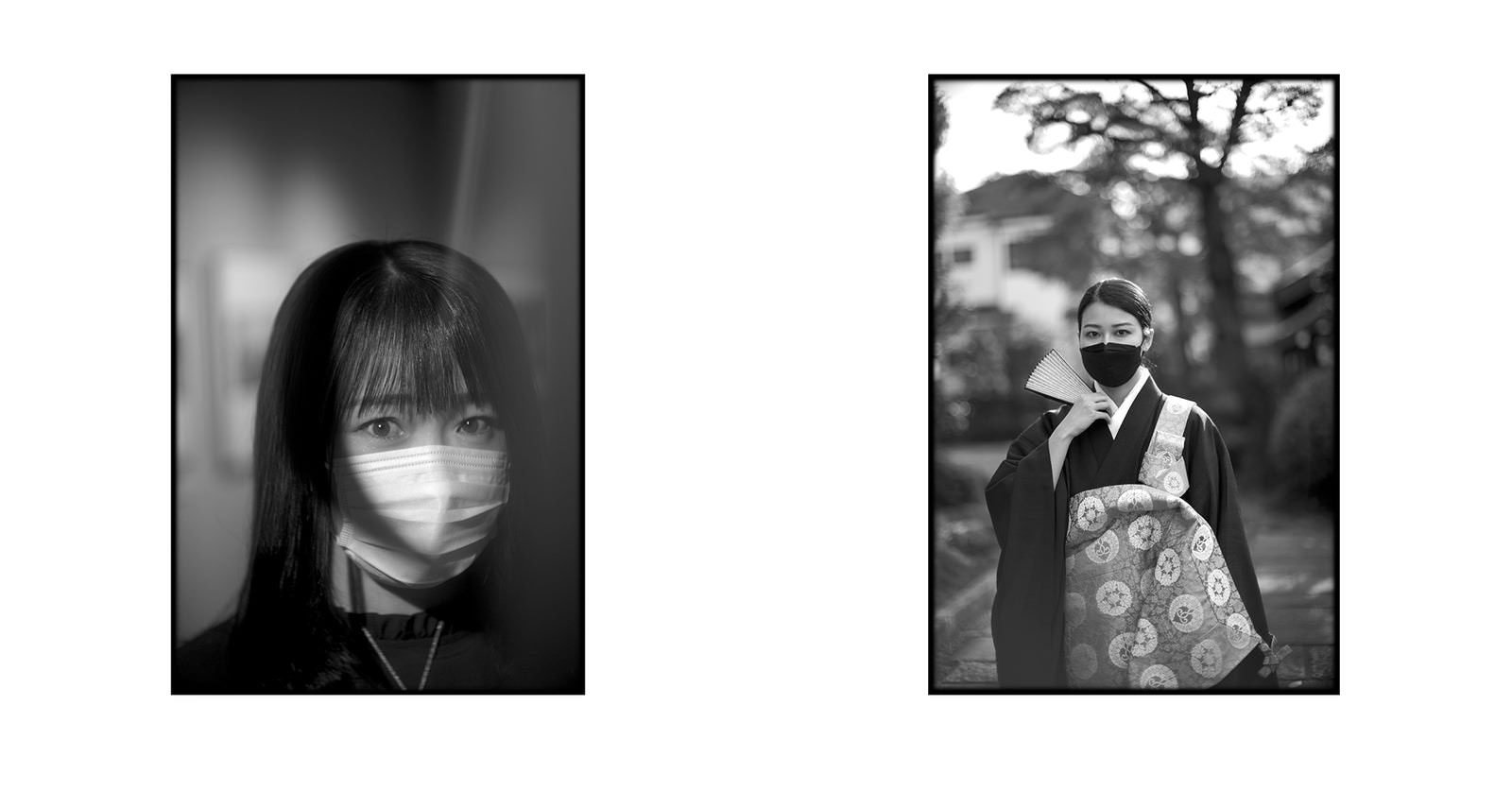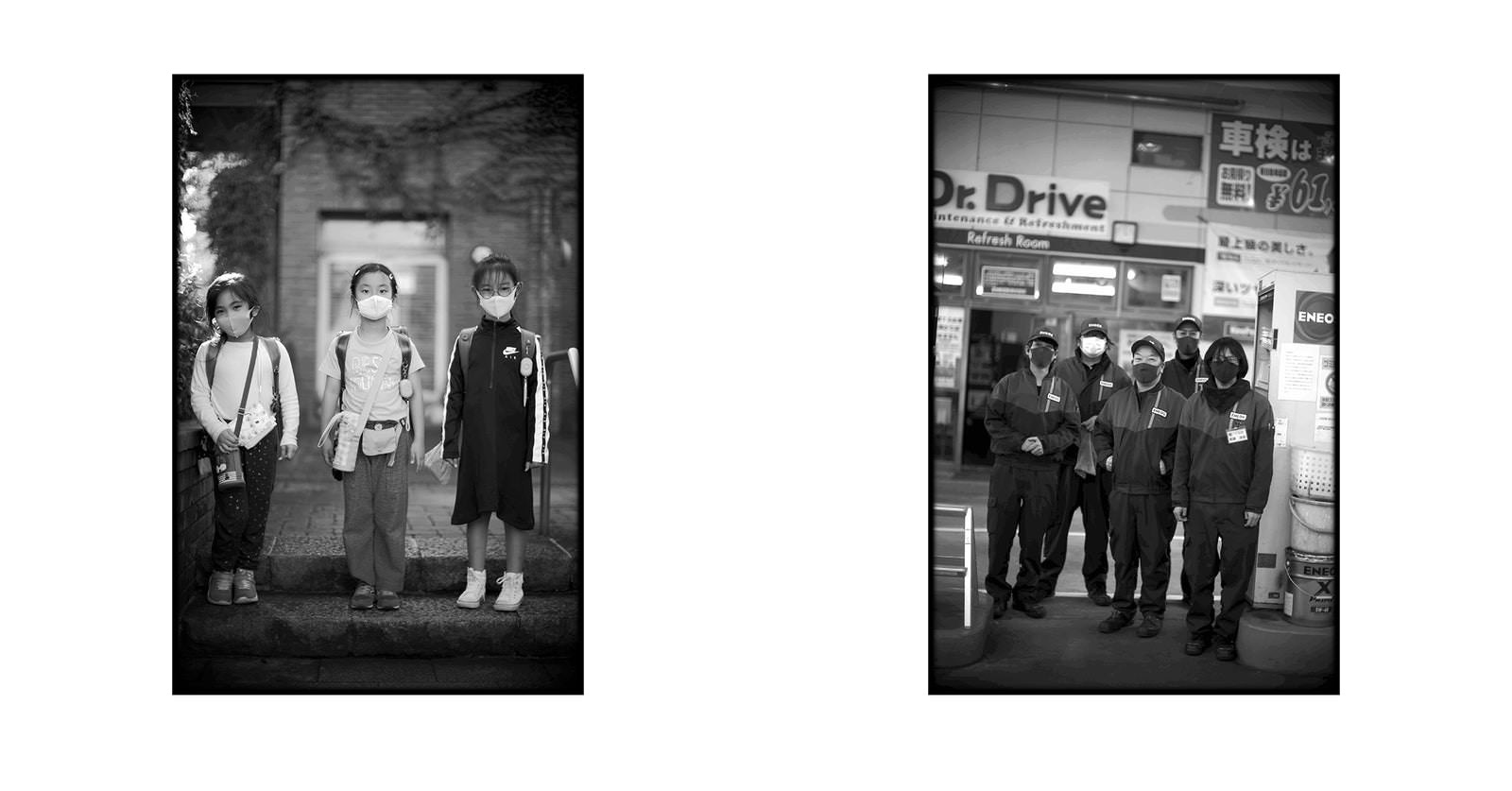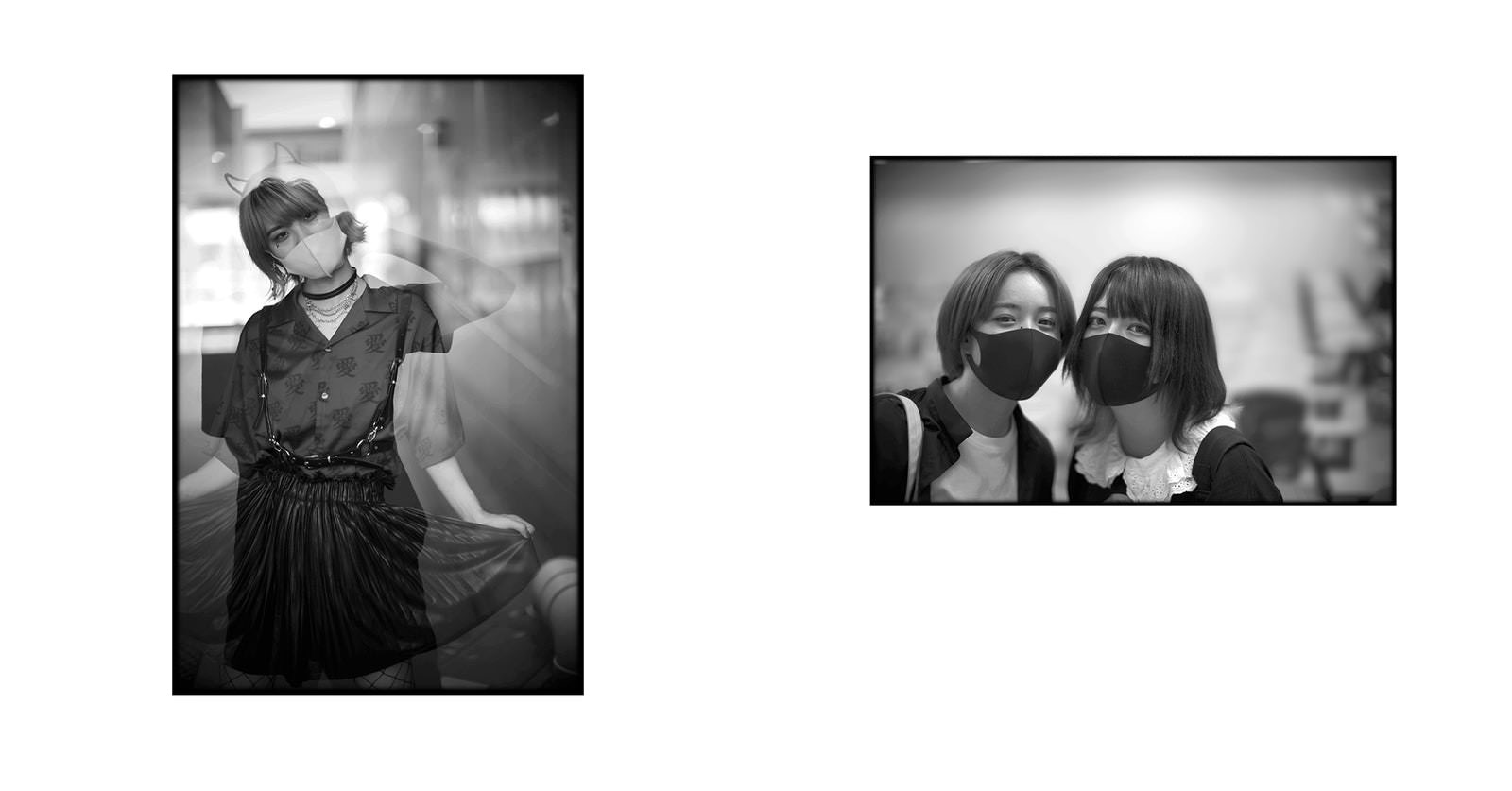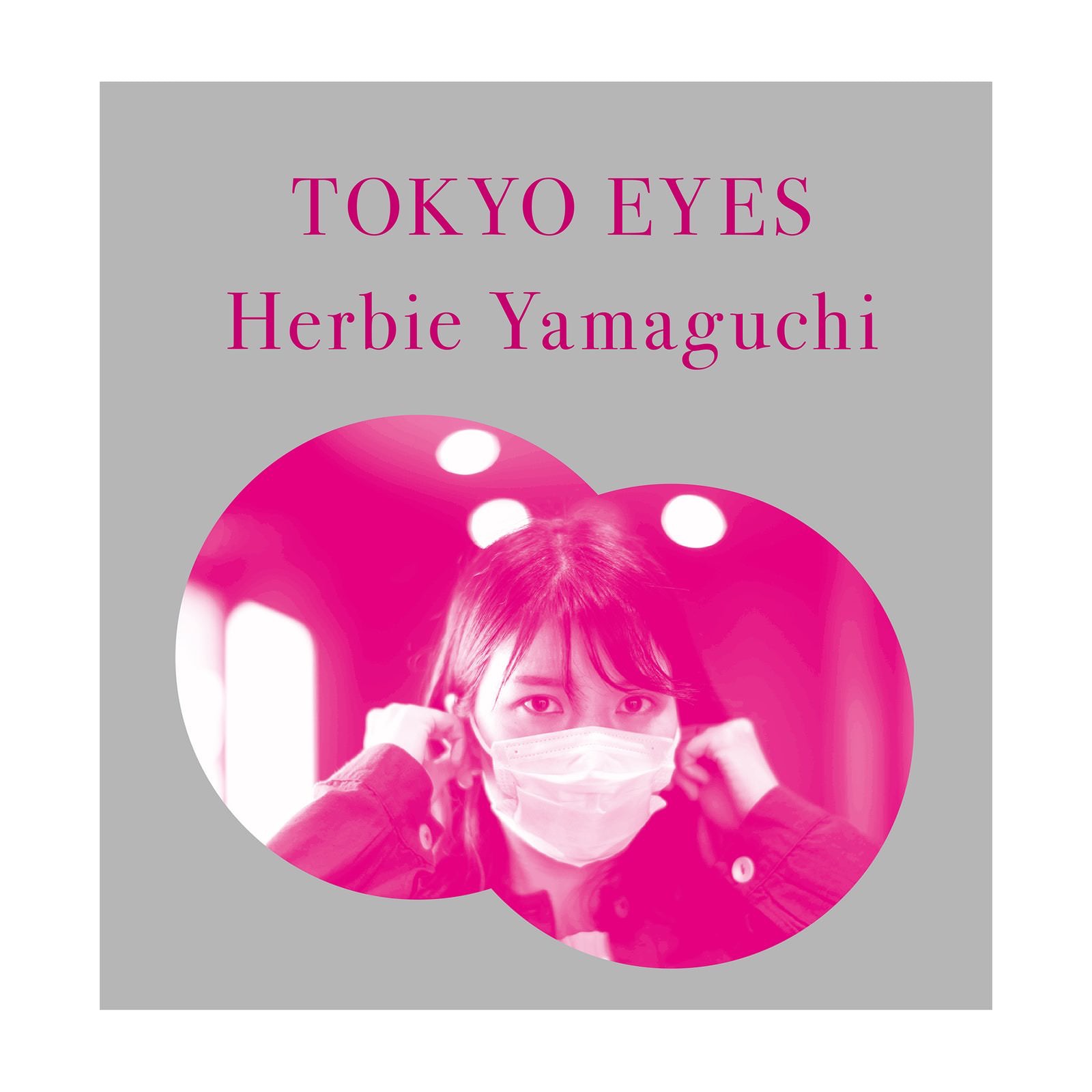Herbie Yamaguchi: Tokyo Eyes
“Until a few years ago, before the Covid-19 pandemic, I would have instantly stepped away from people walking towards me wearing black face masks because I thought they looked suspicious. Since wearing masks has now become an ordinary routine, those wearing black masks appear to me as stylish people who are fashionably coordinating their masks with their clothing. It is incredible how much our habit of wearing masks has changed perceptions. To me now, people wearing masks look as beautiful as never before because their eyes seem to shine all the more brightly, and with a strong willingness. While it is also true that some people put on make-up only around the eyes, they strive to express their feelings just with their eyes. As the saying “the apple of one’s eyes” implies, such eyes are captivating. There are people who feel more comfortable wearing masks as well. Among them, many want to wear masks even after the pandemic subsides. In Western countries, a dominant opinion is that people want to take off masks as soon as possible because it is hard to read the feelings of others.
This certainly makes sense because quite a few people in Japan, too, worry about the relationship between young children and their carers screened by masks. Nonetheless, a face mask is an important item to save human beings from the Covid disaster. While many photographs included in this book were taken in Tokyo, there are some photographed in other places such as Fukuoka and Fukushima, and so I should have titled the book “Japanese Eyes.” However, I dared to title it Tokyo Eyes. Apples of eyes, love, and cues from Japan to the world. What do we have to learn from now on and what will save human beings?” (Herbie Yamaguchi)
About the Author
Herbie Yamaguchi was born in Tokyo, Japan in 1950. When he was in his second year of Junior high school, he joined the photography club. In 1973, after he graduated from university, he went to London and spent 10 years there.
He joined the musical company and performed as an actor for a while. He encountered the movement of punk rock and the subculture, experiencing what many call the most exciting time period of London. In such a London life, he took portraits of musicians and lively scenes of London, those photos were highly appreciated. After returning to Tokyo, he continued to take photos of everyday people, while also taking photos of many musicians and artists in Japan. He has created many works of snapshot and portrait with monochrome photos.
Many fans admire his gentle and natural style. The themes of his works, “I’d like to take photos of humanity’s hope” and ” I’d like to take photos of people who love others”, have never changed from junior high school to the present. In 2014, he was chosen as one of 140 photographers in the world who supported Leica’s history at the photo exhibition “Eyes Wide Open! 100 Years of Leica Photography” commemorating the 100th anniversary of Leica. Besides creative photo activity, he also has been working as an essayist, radio, TV personality, and lyricist.

